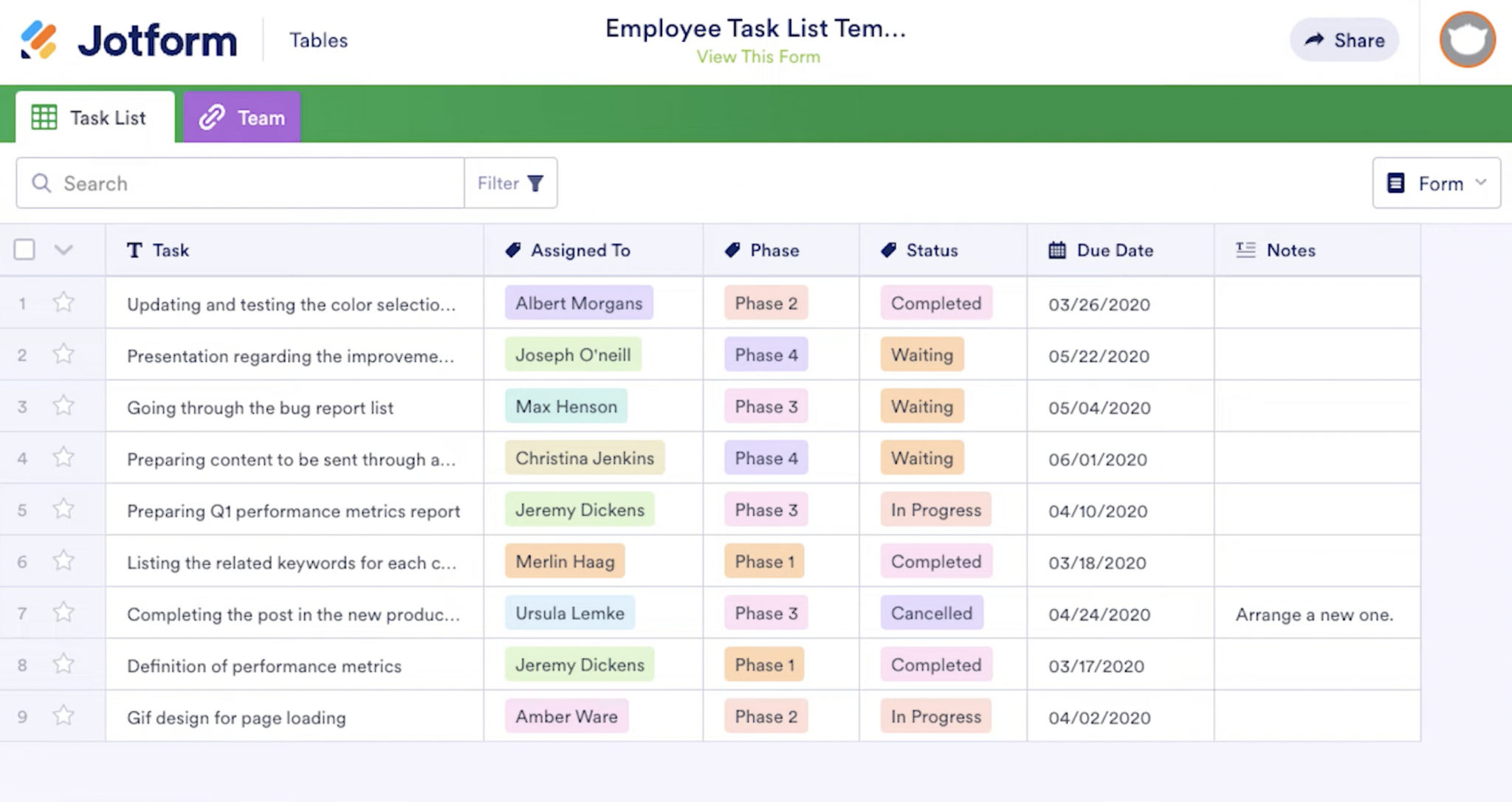The type of person who launches a company or aspires to a leadership role in a big organization typically believes they can do whatever they set their mind to. Under the daily crush of work, this often manifests as them doing everything.
That sounds commendable, except that it’s impossible to really do everything — and trying to do the impossible doesn’t lead to success. Delegating tasks, scary as that seems for many, is essential to the growth of a business and to your own growth as a leader.
Let’s be frank — delegating tasks can be scary, especially when you’re new at it. If you are the one in the position to do the delegating, then you’re the one who will bear the responsibility if things go wrong. If you’re a manager in a large company and a subordinate fails at an important task you delegated, upper management will demand an explanation from you. If you’re the business owner, the loss and liability of the subordinate’s mistakes will ultimately be yours.
Those concerns freeze many potential leaders. They don’t trust anyone else to do the task as well as they can and doubt their own ability to teach someone how to do it. This is a career and business dead end. There’s a limit to how much one person, no matter how energetic and productive, can get done.
Delegating is an essential leadership skill
Think about how you got started with your career. Did you emphasize your work ethic and your willingness to tackle any task that needed to be done when you interviewed for that key internship or your first “real” job? You probably did because you quite reasonably assumed those are the traits employers seek in employees who are just starting out.
That same work ethic and willingness to take responsibility for their work is often what earns people their first promotion. This is when organizations begin to identify genuine leaders. From your very first step up the ladder, how others evaluate you begins to shift from how much work you get done to how much work your team gets done.
Rising to the leadership ranks of any well-run organization requires having the judgment, intuition, and organizational skills to delegate tasks to trustworthy members of the team in order to achieve results. This might call for a deliberate shift in perspective when your success so far has hinged on doing everything yourself.
Barriers to effectively delegating tasks
The biggest single barrier to delegating is fear that the person you delegate to won’t do the job right. This isn’t a baseless fear, particularly if the task you’re delegating is one you mastered well enough to earn a promotion to a managerial position.
Not dealing with this fear puts you at risk of becoming a control freak or a tyrannical micromanager. These sorts of leaders often appear to be getting results, but their teams are invariably unhappy and often frustrated.
And why wouldn’t they be? They are hassled by a boss who appears not to trust them. This dysfunctional workplace relationship leads to poor morale, disengagement, and a team that walks on eggshells instead of charging ahead confidently. The result is often costly turnover.
A leader who is reluctant to delegate tasks generally has a mix of reasons. On the positive side, they may simply enjoy doing the task themselves. It’s often comforting to have something to do that’s familiar — after all, not everyone wants to be challenged all the time.
Their motive might be altruistic because the staff is already working hard and they don’t want to assign them more work. Less altruistically, the leader might be reluctant to delegate tasks because they want to make themselves indispensable.
The worst motive for not delegating is because the leader believes employees aren’t motivated to do the work or aren’t genuinely committed. If that is what holds you back from delegating, your company has a serious problem. The counterintuitive way to solve the problem is to begin delegating tasks and tracking the outcomes.
Here is why it’s important to take the next step and delegate tasks to people you think are up to the responsibility.
Delegating tasks builds companies
The COVID-19 pandemic caused corporate America to abruptly shift to remote work. This could have happened years ago, but despite endless research touting the benefits of more flexible work arrangements and the availability of technology capable of supporting remote work, employers insisted employees come into the office every day.
Generally, companies forced to shift to remote work have seen improved productivity. It turns out employees are more focused on what they need to get done when they don’t have to worry whether they look busy when the boss walks by.
Micromanaging undermines morale and erodes confidence, while delegating tasks buoys morale and builds confidence. Delegating a task is a powerful sign you trust the team member and believe in their skills and judgment. Delegating gets better results — and more done — than hoarding the work or micromanaging how it’s accomplished.
And when you delegate tasks, these benefits flow in both directions. The person who assigned the task can focus on the work only they can do and gain confidence in their ability to assess employees and match people with work that fits their skills and interests. Meanwhile, the employee they’ve assigned the task to feels valued and gets to develop a new skill.
When an entrepreneur launches a company, they often keep the books, make sales calls, greet customers, do the taxes, and every other essential task. As the company grows, the founder needs a CFO (or an accountant, at least), a sales team, and other team members capable of doing these necessary tasks better than they can. A founder who is reluctant to delegate these tasks slows the growth of the company.
Delegating tasks helps your employees develop new skills
Your first impulse once you’ve decided to delegate a task is to assign it to the person you’re absolutely certain knows how to do it right. That makes perfect sense, of course, but it can also cause you to miss an opportunity to grow the skills of your team.
When you want to take a task off your to-do list, consider who on your team is ready for more responsibility. Who is capable of learning how to do the task and would appreciate the opportunity? Is there someone on your team who you sense is becoming less engaged because they are no longer challenged by their job? Who do you think would become a long-term employee if given more responsibility? It’s less important that they know how to do the task than it is that they are capable and eager to learn how to do the task.
This more strategic way of thinking about delegating means taking measured risks. There’s the possibility that whoever you assign the task won’t succeed the first time, and they may not do it as well as you when they start. At a minimum, training someone how to do the task requires an investment of time. When that’s in short supply, leaders might conclude they can’t invest in building their team and continue doing every task themselves.
This is a self-defeating pattern. It holds both you and your team in place, doing today what you did yesterday simply because you already know how. Delegating involves investing time at the beginning to teach your employees new skills. In the longer term, it will allow you to focus on the strategic work of growing your company.
Delegating tasks gives employees new opportunities
Every business wants employees who conscientiously strive to improve their performance and skills, and that’s the exact mindset of the vast majority of employees. A recent survey by the Sitel Group found that “Ninety-three percent of U.S. employees believe regular, on-the-job training helps deliver better customer experience, customer service and care to clients.”
Delegating tasks and following through with supervision and instruction to make certain the employee succeeds in accomplishing the task certainly qualifies as on-the-job training. Delegating tasks has the built-in advantage of revealing who on your team is eager for more responsibility and could complete more complex tasks. Whether you provide the opportunity is up to you.
That same Sitel survey found that 88 percent of Gen Z employees want their employers to provide them with formal training programs, but 25 percent say they haven’t taken advantage of training because they don’t think it’s important to their managers. If your team seems disengaged and unmotivated, the problem may be management, not the employees.
Matching the task with the team member
Delegating a task effectively requires knowing the task well enough to train someone else how to do it, but that alone isn’t sufficient. You must also know the individuals on your team well enough to match a specific task with the right person.
For simpler tasks, the “right” person might simply be the person on your team who has the least to do. For more complex tasks, you have to be aware of each person’s skills, what challenges them, and whether challenges frustrate them or spur them to master new skills.
If an employee fails at the task and seems unlikely to master it, the best response is to thank them for the effort and delegate the work to someone else on your team. A sincere effort to learn what people can do will almost inevitably reveal what they can’t do. Delegate other tasks to that person to signal you haven’t lost confidence in them. This will likely motivate them to achieve more.
Meeting new management challenges
There are valid worries about how much time and effort you’ll have to put in before the long-term productivity improvements from delegating tasks shows up in your reports and, most important, your bottom line. It does require time you might feel you don’t have to train, coach, and supervise employees to do more and different jobs, but there are ways to make it easier.
For example, the Jotform employee task list template is a free online tool that helps you assign tasks to employees and monitor their progress by setting deadlines for updates and milestones. Sharing the spreadsheet with your employee makes the process transparent for mutual accountability.
Delegating tasks will pay boundless dividends by making you a better leader and your team more engaged and productive. It’s how you build the team that will make your company a success.
























Send Comment: